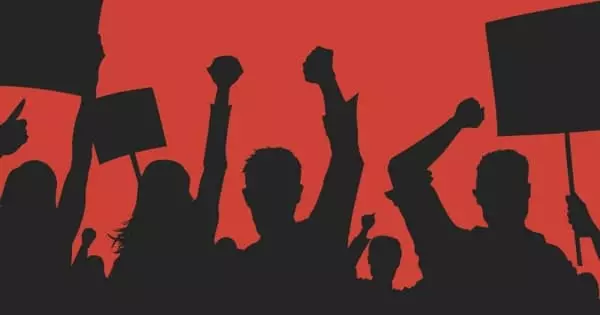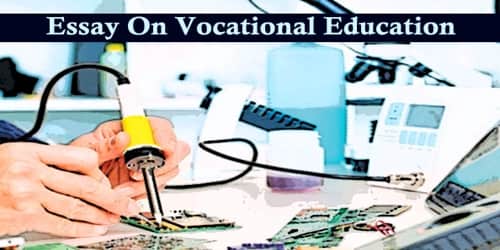In the chapter on Fundamental Rights, our Constitution guarantees basic rights to all citizens of the country. It is also a virtual fact that the fundamental rights of the entire population cannot be subordinated to the fundamental rights of a specific group or section of the population. There can be no right to strike if it interferes with the lives of ordinary people and causes huge losses to the national economy.
In a democracy, government employees are part of the government machinery and thus have a duty and responsibility to society. Too many strikes and bands are very detrimental to the smooth operation of government and cause a great deal of hardship for the common man. Everyone in our country talks about his rights in a democracy, but he forgets about the fundamental duties enshrined in the same Constitution.
Strikes, in the eyes of workers, are the ultimate weapon, used only when all other means of struggle and negotiation to meet their genuine demands have been exhausted. It has been observed that the working class as a whole has been relatively responsible, only resorting to strikes in extreme cases when negotiations have failed completely or when employers appear to be completely insensitive to legitimate labor demands.
Denial of this right would result in a massive deterioration of workers’ bargaining power, which has already been weakened by various macroeconomic processes such as globalization and the withdrawal of the state from key areas of regulation and provision. The socio-economic rights of citizens, including workers, have never been freely given by the State or employers in any society; their recognition and implementation have always been the result of a long struggle on the part of workers and other groups.
Changing the conditions of such a struggle means changing the possibility of ensuring these fundamental rights, which are even recognized in the Indian Constitution. As a result, the right to strike for workers remains an important tool for ensuring all citizens’ basic economic rights. Nobody claims that government employees should not be able to form unions to protect their rights. The problem arises when this right is abused and people resort to strikes, hartals, and bandhs, effectively halting everyday life for the average person. Indeed, over time, under the patronage of politicians and political parties, trade unions or organizations have come to feel so powerful and perverse that they are willing to neglect their work in order to demand more perks and facilities. The frequency with which various trade unions resort to strikes has resulted in a heavy toll on the socio-economic fabric of the country. All the political parties, taking excuse for their vote-banks, never resort to taking any tough action against such striking employees.
Strikes, according to the Supreme Court, “hold the state hostage” and “cause significant loss of working days.” The Supreme Court also stated that the strike is the most frequently used weapon in the country. The Supreme Court stated unequivocally that employees have no fundamental right to strike. The Bench stated that the Supreme Court had specifically held that even a very liberal interpretation of sub-clause (c) of clause I of Article 19, cannot lead to the conclusion that trade unions have a guaranteed right to effective collective bargaining or to strike, either as part of collective bargaining or otherwise.
Thus, the Court did not reject the employee’s right to form an association, but rather made it clear that legitimate grievances of government employees can be addressed through various statutory provisions. In making its arguments, the Court also stated that government employees can legitimately exercise their rights as long as they do not jeopardize the well-being of the world’s largest democracy.
What we have is a slew of socioeconomic, political, and civic rights. Everyone is entitled to legal protection. As “a facet of industrial democracy,” the right to strike is a political right. It can be used legally not only to protest employer policies but also to challenge government policy. As far as civil liberty is concerned, it entails three rights: freedom of association, freedom from forced labor, and freedom of expression. There is no absolute right. Every right is subject to reasonable limitations in the interests of other segments of society or society at large. That is not a reason to deny the right, but rather a challenge to define the limits wisely.
The work thoroughly discusses the reasons for legal protection as well as strike restrictions, ILO standard-setting, and the import of international instruments. It is not widely known in India that the ILO’s Committee on Freedom of Association (CFA) determined that the right to strike is an essential component of freedom of association, as guaranteed not only by Conventions 87 and 98 but also by the ILO Constitution.
When industrial disputes arose, the Indian government, in the name of maintaining law and order, arrested and detained trade union members and organizers. The CFA pointed out that the complainant had made no specific references to cases in which the right to strike had been prohibited, and thus there was insufficient information to warrant further investigation of the case. The Committee simply stated that strikes are recognized as a legitimate weapon of trade unions in furtherance of their interests in the majority of countries. Furthermore, the Committee stated that “Strikes are regarded as legitimate in these countries only if they are exercised peacefully and with due regard for temporary restrictions placed thereon (for example, cessation of strikes during conciliation and arbitration procedures, refraining from strikes in violation of collective agreements).”
The Committee, on the other hand, grew more committed to the protection of the right to strike over time. India is a member of the International Labor Organization. Unless reviewed and reversed, the Supreme Court’s decision may be an international embarrassment.
In the Indian context, when the economy is about to take off, trade unions and the labor class must recognize that the country’s future depends on “an all-out effort to improve the quality of work and raise the living standard of each and every citizen of this country.” Only then will the country be able to make rapid progress. The government should also establish impartial mechanisms to address genuine employee grievances. The service rules should be clear and unambiguous. Nepotism and corruption should not be tolerated in employee recruitment, transfer, and promotion.
It is the responsibility of both employees and employers to avoid conflicts and try to resolve them with an open mind, with the good and welfare of society and the nation as a whole in mind.
















